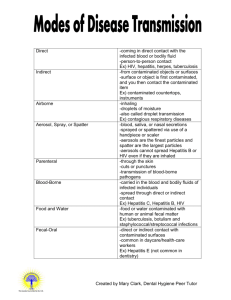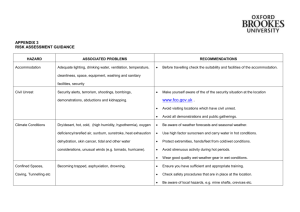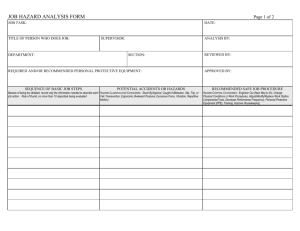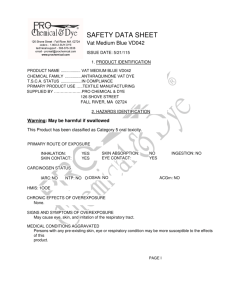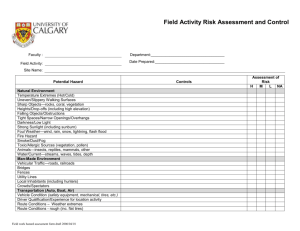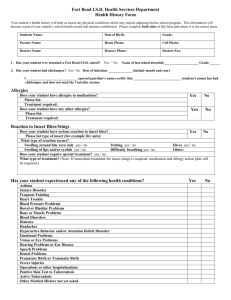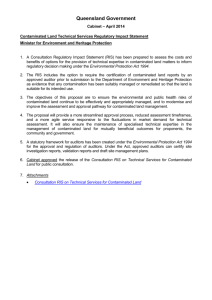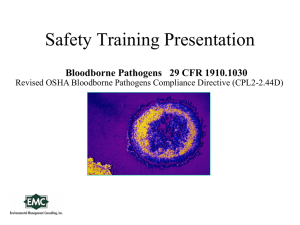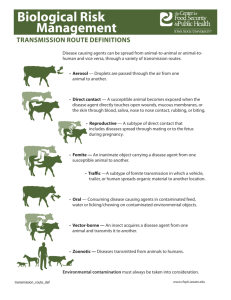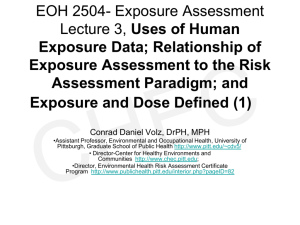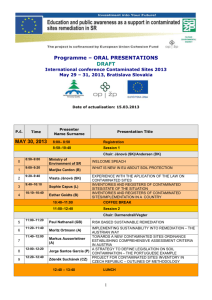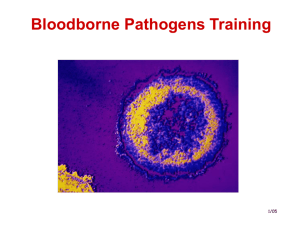Travel Hazard Checklist
advertisement
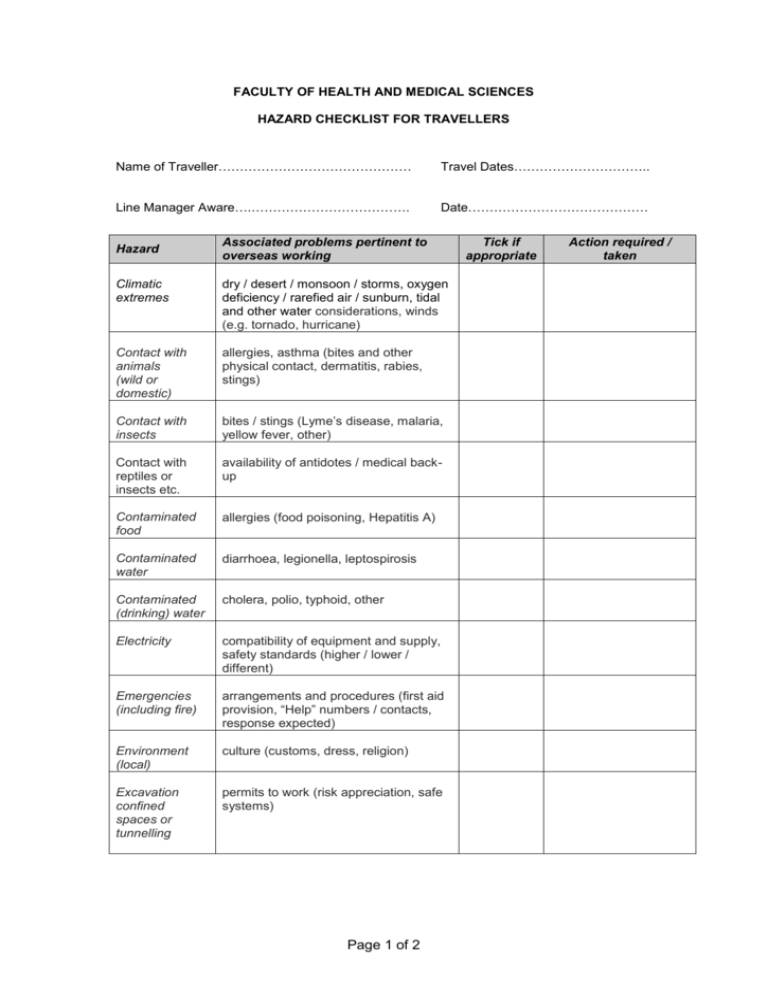
FACULTY OF HEALTH AND MEDICAL SCIENCES HAZARD CHECKLIST FOR TRAVELLERS Name of Traveller……………………………………… Travel Dates………………………….. Line Manager Aware….………………………………. Date…………………………………… Hazard Associated problems pertinent to overseas working Climatic extremes dry / desert / monsoon / storms, oxygen deficiency / rarefied air / sunburn, tidal and other water considerations, winds (e.g. tornado, hurricane) Contact with animals (wild or domestic) allergies, asthma (bites and other physical contact, dermatitis, rabies, stings) Contact with insects bites / stings (Lyme’s disease, malaria, yellow fever, other) Contact with reptiles or insects etc. availability of antidotes / medical backup Contaminated food allergies (food poisoning, Hepatitis A) Contaminated water diarrhoea, legionella, leptospirosis Contaminated (drinking) water cholera, polio, typhoid, other Electricity compatibility of equipment and supply, safety standards (higher / lower / different) Emergencies (including fire) arrangements and procedures (first aid provision, “Help” numbers / contacts, response expected) Environment (local) culture (customs, dress, religion) Excavation confined spaces or tunnelling permits to work (risk appreciation, safe systems) Page 1 of 2 Tick if appropriate Action required / taken Hazard Associated problems pertinent to overseas working Hazardous substances/ chemicals antidote availability (CHIP, spillage arrangements, transport requirements) Legal differences local codes / guidance (local standards, local statute -staff informed and trained) Natural phenomenon avalanche, earthquake, volcano, other Needles (contaminated) HIV, Hepatitis B Stress accommodation problems, civil unrest, crime, vandalism and violence, extremes of heat / cold, fatigue, language / communication problems, lack of support (especially family / peers), loads / expectations excessive, loneliness / remoteness, sickness, unfriendly environment Transportation competent driver(s), hazardous terrain, properly maintained vehicles, suitable transport Import / export Legal carriage of prescription and non prescription of medicines should be confirmed by the appropriate embassy. Page 2 of 2 Tick if appropriate Comment
